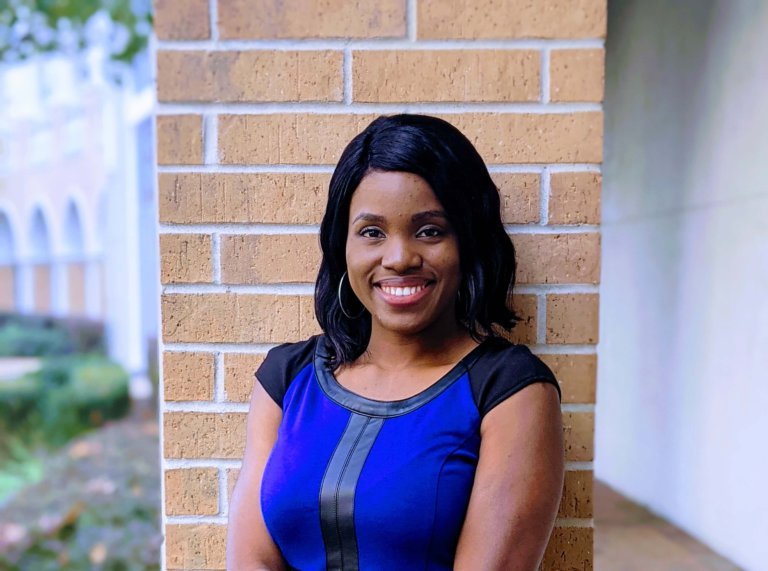
In 2014, nearly 300 Nigerian schoolgirls were kidnapped from their school by terrorist group Boko Haram. “Most of us got injured,” one of the schoolgirls says to BBC, adding that the gunmen threatened to shoot them.
Vine Adowei, born in Nigeria, was chilled by how this is happening in her own home. She was spurred to pursue communication studies to work with trauma victims. Her passion would lead to internships with two organisations that tackle human trafficking: New Creation the New Creation Shoppe and Northern Virginia Human Trafficking Task Force.
Now in the US under a Diversity Immigrant Visa programme, she has completed a degree in communications from James Madison University and has written a poetry book during the peak of COVID-19. Find out about her studies and what encouraging advice she has to share below:
What made you choose communication studies?
I chose communication studies because I noticed, from a young age, people who are effective communicators tend to have better relationships. They are also better at managing conflict and more likely to have a leadership influence on their peers.
I was very introverted and socially awkward growing up so I decided to strengthen my skill in effective writing and public speaking.
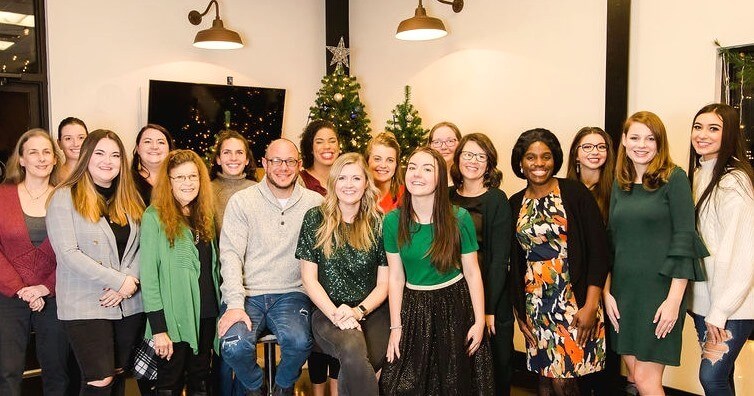
“In terms of community involvement, I volunteered with New Creation, a local nonprofit organisation in Harrisonburg that combats human trafficking,” she says. Source: Vine Adowei
Why pursue communication studies at James Madison University in the US?
I chose communication studies at James Madison because I felt I would get more exposure and a multicultural perspective from learning in a different country than where I was born and raised. When I researched the school, I found it has a friendly and welcoming environment and was driven to apply.
What difference would it have made if you studied at a local institution?
There would have been a huge difference because I wouldn’t have the exposure and multicultural worldview that I’ve gained in the US. I’ve gotten to meet so many people with different backgrounds, values, cultures, and communication differences.
This has really expanded my understanding of the world and those around me.
Do you have any classes that stand out for you?
I found group communication to be a particularly outstanding class because it challenged me to develop cohesive ideas and express them in front of a group of people. Thus, I got over my fear of public speaking.
The emphasis was not about being perfect but rather, developing the communication skills necessary for success in the workplace, in relationships and in intercultural contexts.
What are some of the practical elements from your time at uni you can share with us? Walk us through your community involvement and your most recent poetry book.
A major habit I practised in uni that I still apply today is discipline and time management. Although the course load you have as a student often feels intense, it gets more challenging once you get into the workplace and include having a family or other social commitments.
In terms of community involvement, I volunteered with New Creation, a local nonprofit organisation in Harrisonburg that combats human trafficking. I also interned with the Northern Virginia Human Trafficking Task Force to support their efforts of collaboration and advocacy against human trafficking across the US.
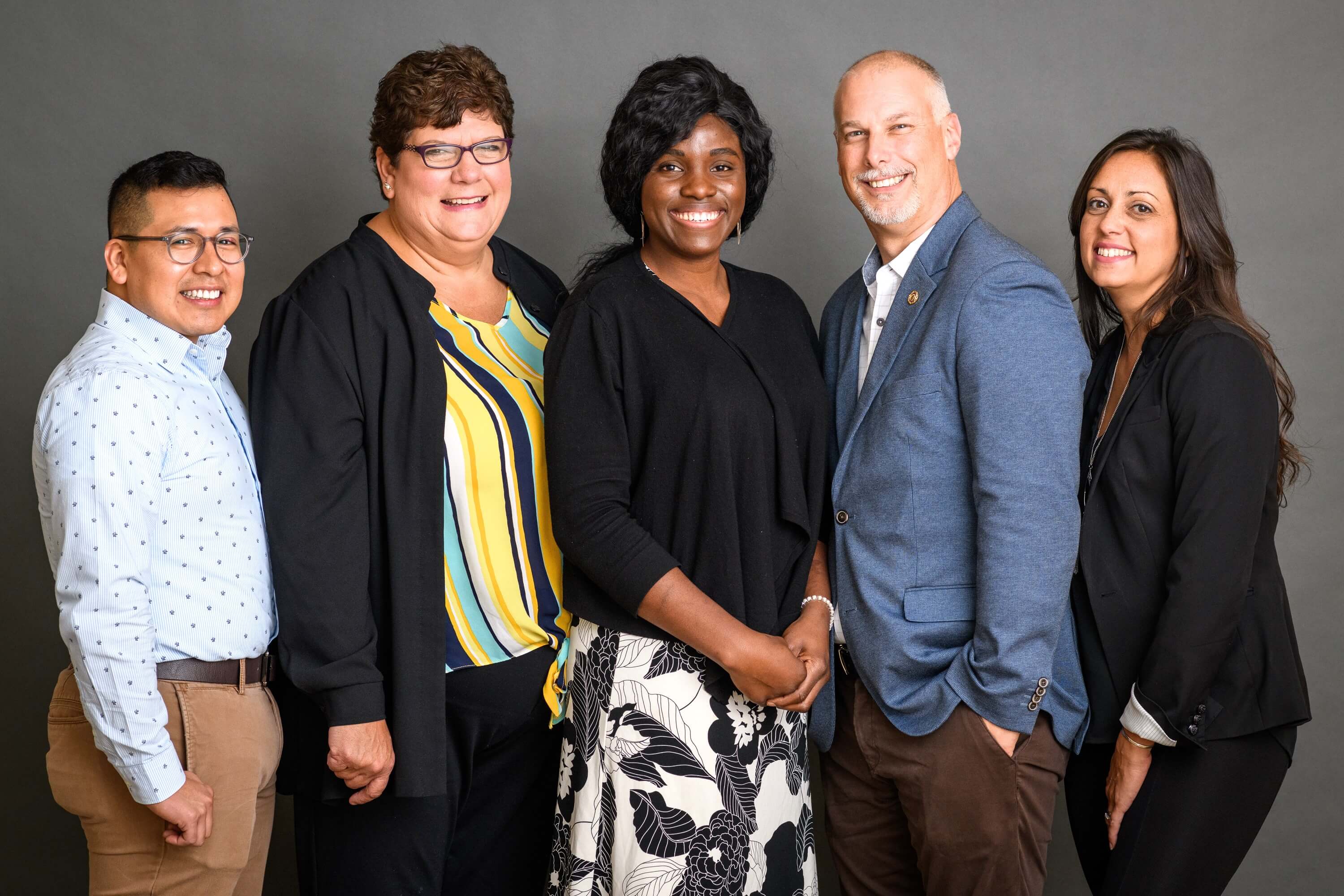
Adowei with colleagues at the Harrisonburg Redevelopment Housing Authority. Source: Vine Adowei
Furthermore, I worked with the Harrisonburg Redevelopment Housing Authority, a local government entity that focuses on the issue of homelessness in a six-country region. Also, recently, I wrote “This Beautiful Voyage: Poems About Life, Trauma, and the Journey to Wholeness” as a result of working around the issue of trauma.
This trauma is experienced by human trafficking victims, homeless individuals, and the everyday person who experiences it in some form or another. A favourite quote of mine is “There is so much power in ‘acknowledge’. We all want to ‘aspire’, we want to be ‘inspired’, but how can we fly high if we don’t face the fact that there is baggage to unpack?”.
I think this poem is important because it highlights the importance of dealing with our traumatic experiences in order to be healthy and whole. Also, it’s so we can participate fully and happily in life at work and in relationships.
Tell us one thing most grads in communication studies didn’t know until they started their careers.
I would say one thing most graduates don’t realise until they start their jobs is how much your development and advancement depends on the initiative you show. Even before you start searching for jobs before you graduate, there’s a lot of initiative you need to take in terms of networking, working with your academic advisor, seeking mentorship and so on.
This accumulates and works to your advantage not only when it comes to job-seeking but in the workplace itself. It’s a crucial habit to develop early in your collegiate career.
What do you wish you studied more of and why?
I wish had studied more psychology. A lot of the advocacy work I’ve done with human trafficking and homelessness deals with trauma.
I think a more in-depth background in psychology would better inform that work.
What’s your advice for other fresh graduates who want to get into volunteering?
Don’t underestimate the power of volunteering. It has the ability to positively impact you mentally and emotionally, as well as having the capacity to forge relationships that can lead to connections elsewhere.
From my experience, when you give away your time and skills towards an important cause, your good deeds come back to you one way or another.
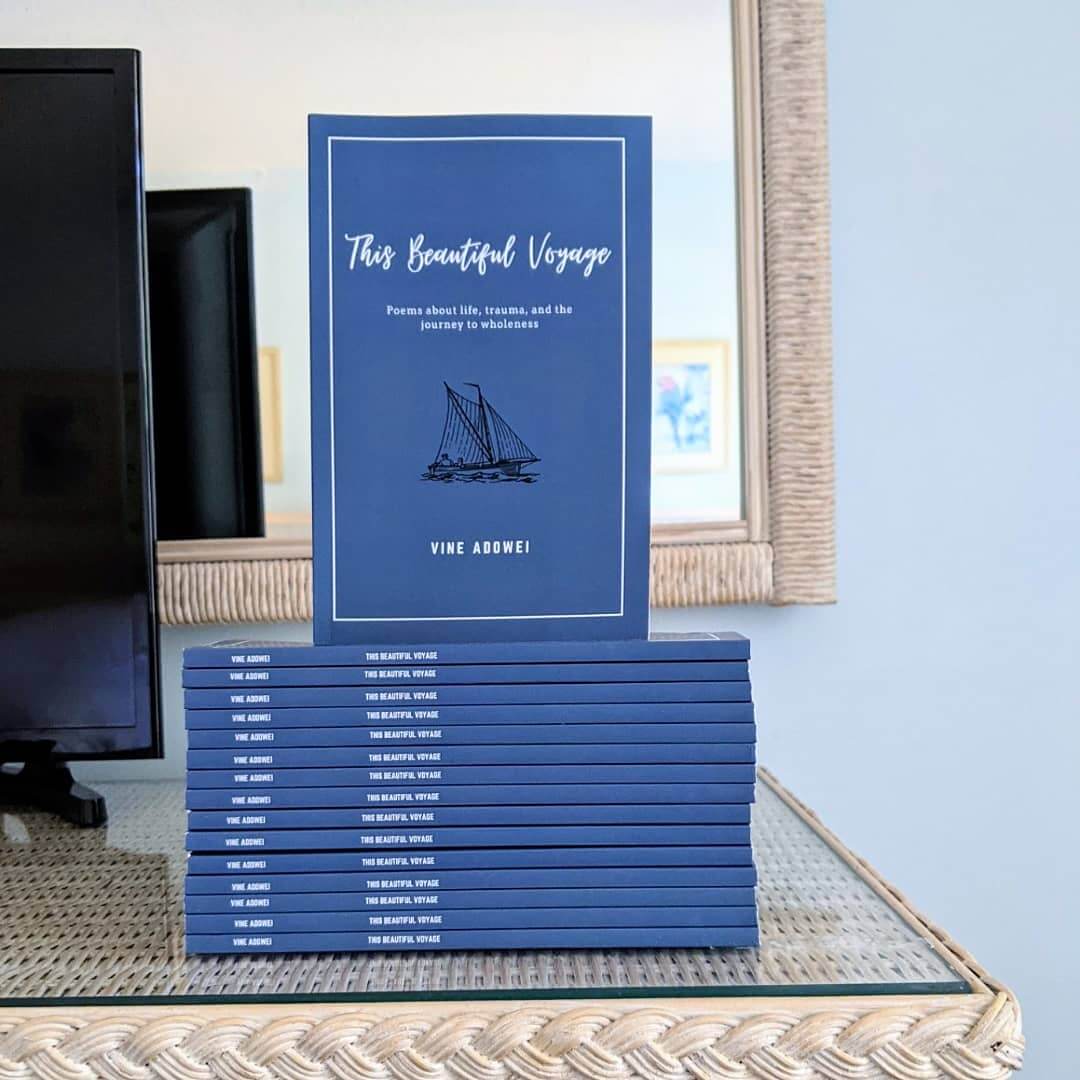
“Also, recently, I wrote ‘This Beautiful Voyage: Poems About Life, Trauma, and the Journey to Wholeness’ as a result of working around the issue of trauma,” she says. Source: Vine Adowei
What would you tell yourself in a one-on-one mentoring session with yourself if you could turn back time?
I would encourage myself to hang in there. Transitioning to a new country and a new way of life is challenging but it gets easier and the benefits make it worth it.
Where do you envision yourself within the next 10 years?
I would like to be more involved in public speaking engagements, write more than one book, and contribute more seriously to social justice issues. Issues including human trafficking, homelessness, and food scarcity.
I would also like to have my own nonprofit or be heavily involved in one already doing these things. I’d like to imagine that I’d have a family of my own.
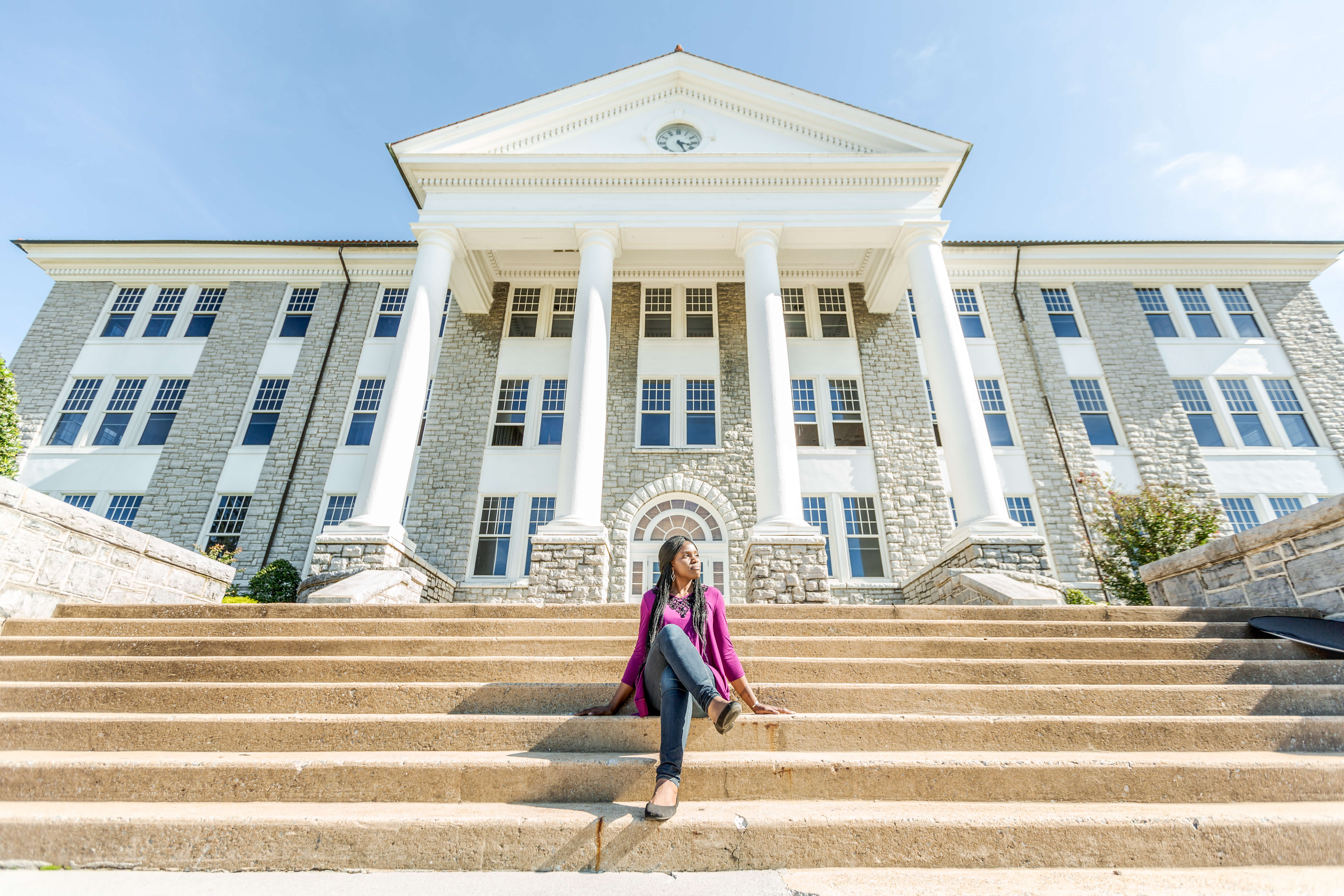
“I chose communication studies because I noticed, from a young age, people who are effective communicators tend to have better relationships,” she says. Source: Vine Adowei
What matters more to you: work satisfaction, salary, social life, or a work/life balance?
I would say that work satisfaction matters most to me as well as a work/life balance. I think it’s very important for me to find great purpose and satisfaction from my work since we spend the majority of our time there.
More time is spent at work than doing anything else (including being with our families). A work/life balance is also important because I want to find the perfect common ground between working hard, resting, socialising, and enjoying life.
Lastly, how did you spend your first paycheck?
I save some of it but I also bought myself a pair of new shoes and treated myself to a movie.
If you’re interested in reading more of her poems, check it out here.










